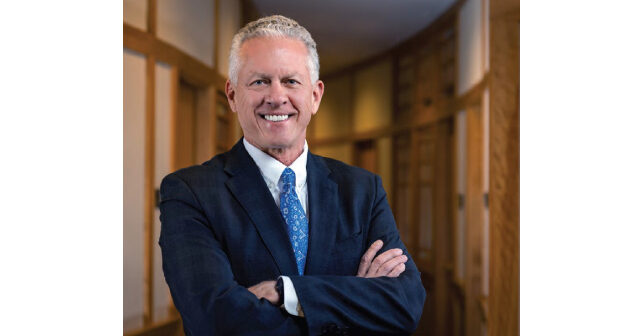
Can you tell us about your role as ABEM president?
Explore This Issue
ACEP Now: Vol 42 – No 01 – January 2023Dr. Keim: I am really excited about this opportunity to work with an amazing board and staff. The work is meaningful to current patient care quality and the future of our specialty. The American Board of Emergency Medicine (ABEM) has proven organizational excellence and has achieved independent recognition for this that, in my opinion, places it at the top of the specialty boards.
What is your “day job” as an emergency physician?
Dr. Keim: I have worked in the same emergency department for 32 years in Tucson, Arizona. It’s a busy Level I trauma center and major referral hub for the region. We see all the common things plus some “spicy” stuff like rattlesnake bites, scorpion stings, and heat stroke. I love my clinical time and learn a ton from our super-sharp residents every shift.
How have emergency physicians been doing with the MyEMCert replacement for the ConCert exam?
Dr. Keim: Feedback from physicians has been very positive. I think this is largely a result of emergency physician contributions to redesigning the MyEMCert process. Current feedback indicates that MyEMCert is convenient and relevant to emergency physicians’ clinical practices. Because modules are open-book and physicians have three attempts to pass, the experience is far less stressful than the ConCert Exam. The early results are in and it’s clear that physicians prefer MyEMCert to the ConCert Exam. The most encouraging comments are about learning new clinically relevant content in the Key Advances sections. This truly has the potential to broadly and efficiently improve patient care practice in our specialty.
ABEM is initiating a new certification for EMS Board Certification called MyESCert. What should emergency physicians know about this?
Dr. Keim: Beginning in 2023, emergency physicians with subspecialty certificates in EMS will be transitioning to MyEMSCert when their current certifications expire. This process is similar to MyEMCert modules that include about 50 questions, with 60 percent on clinical core knowledge, 20 percent on advances in the literature (based on articles, much like the Lifelong Learning and Self-Assessment or LLSAs), and 20 percent on systems and regulations. When fully phased in 2027, physicians will be required to pass four MyEMSCert modules and attest to one Improvement in Medical Practice activity. For emergency physicians with EMS certifications that expire in 2023 or 2025, four MyEMSCert modules will be available, so they have options for how to meet their requirements based on what activities they’ve already completed. Like MyEMCert, EMS physicians will have three opportunities to pass a module. However, if a physician does not pass a module, they will have to wait three months to retake it. So, it’s important to take a MyEMSCert module as soon as they are available to optimize that number of times you can take a module. We strongly encourage physicians to start their recertification process as soon as the modules are available this February 2023.
Why do EMS physicians need to wait three months to retake the module?
Dr. Keim: Because there is only one form of the MyEMSCert module, there will be similar content. To balance this element, ABEM is using spaced repetition as a proven educational principle to optimize physician learning.
What are the three main subject areas where emergency physicians perform poorly in recertification and should try to improve their knowledge?
Dr. Keim: ABEM is working on identifying knowledge gaps in MyEMCert so that emergency medicine organizations can develop focused education materials based on those gaps. The areas vary widely. ABEM is analyzing the content areas and will publicly post the “study points” every year that represent the areas that hold the richest learning opportunity. But, if I were to stress our greatest learning opportunity, it would be with the Key Advances. Every ABEM-certified physician should download and read the Key Advance synopses and watch the Osmosis videos on our website—that’s a great place to start.
ABEM asserts that board certification brings increased income and additional job opportunities. Can you quantify that for us?
Dr. Keim: Based on data taken from the recent ACEP Workforce Study, ABEM and/or AOBEM certification is associated with an annual increase in income compared to non-certified emergency physicians. The prior ACEP-Daniel Stern salary survey showed an increase of about $7,000 per year. We believe that the ACEP Workforce data, when reported, will be considerably higher. ABEM has also been adding new subspecialty certifications and a focused practice designation, which provides additional job opportunities. There is strong published evidence that certification makes a difference in the quality of patient care, including fewer state medical board disciplinary actions.
Last year we asked about ABEM tackling the issue of emergency physicians who speak out against proven measures to reduce the impact of the COVID pandemic such as masks and vaccines and advocate for unproven methods such as hydroxychloroquine and ivermectin. Has ABEM had to discipline any physicians as a result?
Dr. Keim: ABEM continues to ensure that ABEM-certified physicians adhere to the Code of Professionalism. This includes supporting science-based standards of care. Given the nature of these proceedings and the assurances of due process for physicians, ABEM has not made any public comments about the results of professionalism investigations.

Dr. Dark (@RealCedricDark) is associate professor of emergency medicine at Baylor College of Medicine and the medical editor in chief of ACEP Now.
Pages: 1 2 3 | Multi-Page



No Responses to “Interview with ABEM President Samuel M. Keim, MD, MS”